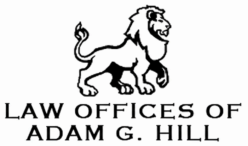How to Protect Yourself from Contractor Fraud in Florida
Contractor fraud is a serious issue in Florida, impacting homeowners, businesses, and property managers alike. Understanding how to protect yourself and recognizing the signs of fraud can save you time, money, and legal trouble. This guide provides essential information on Florida's laws, common fraud schemes, and practical steps to safeguard your property.
What Is Contractor Fraud?
Contractor fraud occurs when a licensed or unlicensed contractor intentionally deceives a property owner to gain financial benefit. This can involve misrepresentation, failure to perform agreed-upon work, or illegal lien filings. Florida law treats contractor fraud as both a criminal offense and a civil wrong, allowing for both criminal prosecution and civil lawsuits.
Florida Laws Addressing Contractor Fraud
1. Section 489.126 – Fraudulent Practices by Contractors
Under Florida Statute § 489.126, contractors are prohibited from engaging in fraudulent practices, including:
- Misrepresentation of qualifications or scope of work.
- Failure to obtain necessary permits.
- Starting work without proper authorization.
- Misapplication of construction funds.
Violations can result in disciplinary actions by the Florida Department of Business and Professional Regulation (DBPR), including license suspension or revocation.
2. Section 713.31 – Fraudulent Liens
Florida Statute § 713.31 makes it a third-degree felony to willfully file a fraudulent lien against a property. This includes:
- Exaggerating the amount owed. (The Florida Bar: "Fraudulent Construction Liens".)
- Including charges for work not performed.
- Failing to properly serve the owner with a Notice of Commencement.
Conviction can lead to significant fines and imprisonment.
3. Section 489.129 – Grounds for Disciplinary Action
Section 489.129 outlines various grounds for disciplinary action against contractors, including:
- Fraud or deceit in the practice of contracting.
- Incompetency or misconduct.
- Gross negligence.
The Florida Construction Industry Licensing Board has the authority to suspend or revoke licenses for these offenses.
Legal Cases Illustrating Contractor Fraud
- Murthy v. Sinha Corp. (1994): The Florida Supreme Court held that a contractor's failure to supervise a project could constitute negligence, even if the contractor was not a party to the contract. Justia.com.
- Viyella Co. v. Gomes (1995): The court ruled that filing a lien for work not performed is fraudulent, emphasizing the importance of accurate lien filings. The Florida Bar.
How to Protect Yourself
1. Verify Contractor Credentials
- Check the contractor's license status with the DBPR.
- Ensure they have proper insurance and bonding.
- Request and verify references from previous clients.
2. Get Everything in Writing
- Use detailed contracts that specify scope, timelines, and payment schedules.
- Include clauses for dispute resolution and penalties for non-compliance.
3. Monitor the Project
- Regularly inspect the work site.
- Keep records of communications and payments.
4. Be Cautious with Payments
- Avoid large upfront payments.
- Use payment methods that provide a record, such as checks or credit cards.
5. Understand Your Rights
- Familiarize yourself with Florida's construction lien laws.
- Know the process for filing complaints with the DBPR.
What to Do If You're a Victim
If you suspect contractor fraud:
- Document Everything: Keep all contracts, receipts, and correspondence.
- File a Complaint: Submit a complaint to the DBPR.
- Consult an Attorney: Seek legal advice to explore options for civil action or reporting to law enforcement.
Contact Us Today
If you believe you've been a victim of contractor fraud or need assistance with a construction-related legal matter, contact the Law Offices of Adam G. Hill. Our experienced attorneys are here to protect your rights and help you navigate the complexities of Florida construction law.
Don't let contractor fraud undermine your investment. For more information on contractor fraud and to schedule a free consultation, call us at 833-918-1877 or message us through our Contact Page.
